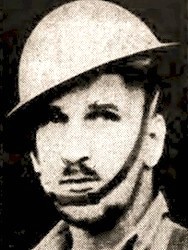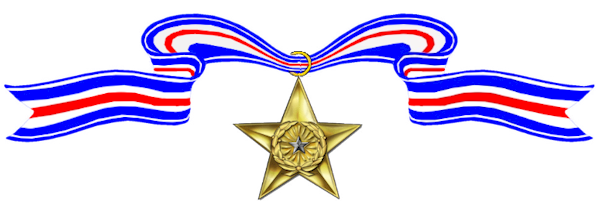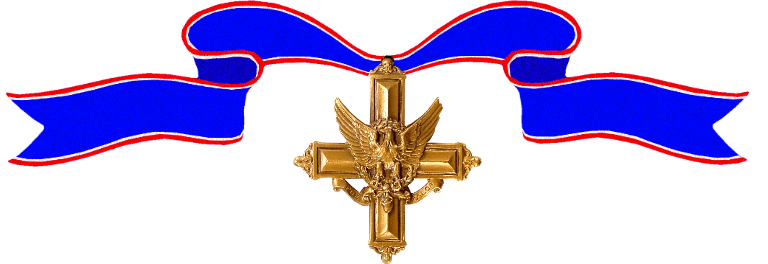In 1948 Arthur Wermuth was elected marshal of City Court in Wichita, Kansas, and was elected sheriff of Jefferson County, Colorado from 1957 to 1962.

–
Born:
,
Home:
,
Awards Received
-

Silver Star
-

Distinguished Service Cross
-
Silver Star
Service:
United States ArmyRank:
First Lieutenant (Infantry)Regiment:
57th Infantry RegimentDivision:
Philippine ScoutsAction Date:
World War II
(Citation Needed) – SYNOPSIS: The President of the United States of America, authorized by Act of Congress July 9, 1918, takes pleasure in presenting the Silver Star to First Lieutenant (Infantry) Arthur William Wermuth, Jr. (ASN: 0-346666), United States Army, for gallantry in action while serving with the 57th Infantry Regiment, Philippine Scouts, in action against the enemy on Bataan, Philippine Islands, in 1942. His gallant actions and dedicated devotion to duty, without regard for his own life, were in keeping with the highest traditions of military service and reflect great credit upon himself and the United States Army.
-
Distinguished Service Cross
Service:
United States ArmyRank:
First Lieutenant (Infantry)Batallion:
1st BattalionRegiment:
57th Infantry Regiment (PS)Division:
Philippine DivisionAction Date:
January 10 – 16, 1942
Headquarters, U.S. Army Forces in the Far East, General Orders No. 16 (January 28, 1942)(Citation Needed) – SYNOPSIS: The President of the United States of America, authorized by Act of Congress July 9, 1918, takes pleasure in presenting the Distinguished Service Cross to First Lieutenant (Infantry) Arthur William Wermuth, Jr. (ASN: 0-346666), United States Army, for extraordinary heroism in connection with military operations against an armed enemy while serving with Company D, 1st Battalion, 57th Infantry Regiment (Philippine Scouts), Philippine Division, in action against enemy forces in the vicinity of Abucay, Bataan, Philippine Islands, from 10 to 16 January 1942. On 9 January 1942, when the Japanese launched the first in a long series of ferocious attacks against the Abucay Line, Company A of the 57th Infantry (Philippine Scouts) held positions near Kalaguiman, which was north of the Abucay Line and the main force of defenders. The Filipino soldiers and their American officers were battle-weary and demoralized in the face of continuing, and seemingly futile resistance. To bolster moral, First Lieutenant Wermuth, whose Company D had been nearly annihilated, was sent to join them. By the following night the continuing onslaught had forced the Philippine Scouts further south and the Japanese had entered and controlled Kalaguiman. At Allied headquarters it was determined that the only effective way to delay further advance was to destroy the barrio and then blow the wooden bridge across which enemy troops continued their advance south. First Lieutenant Wermuth volunteered to do the job. Setting out before dawn, and toting two five-gallon drums of gasoline, First Lieutenant Wermuth slipped past infiltrated enemy snipers, deep behind what was now the enemy line, and into Kalaguiman. With the wind blowing from the north, he crept all the way through the town, now inhabited by hundreds of Japanese soldiers, most of them still quietly sleeping in the huts of local villagers that their invasion had displaced to the surrounding jungles. Behind him, back behind the friendly lines, Filipino artillerymen were preparing big guns for a major fire mission. The plan, worked out earlier that morning, was to begin shelling the city five minutes after the first wisps of smoke from First Lieutenant Wermuth’s fire were seen. The delay was all the time that would be allotted First Lieutenant Wermuth to blow the bridge with a satchel charge of TNT he also carried, and effect his escape.
Creeping quietly all the way through the city, First Lieutenant Wermuth reached the northern limits and then retraced his steps, spreading his gasoline against the walls of thatched-roof hamlets, inside which many enemy still slept despite the fact that it was nearly 10 a.m. The dangerous task at last done, he struck a match and began to head for the all-important bridge. The ensuing fire alerted the entire enemy force, many of whom streamed into the hard-packed dirt main street aflame and dying. Others began quickly to search for the intruder. Creeping through a dark alley, First Lieutenant Wermuth found his way blocked by three enemy soldiers. The shadows had masked his presence but he knew time was running out. He also realized also that any attempt to shoot them down would expose his location and subject him to immediate and merciless gunfire. With four minutes left he started to raise his Thompson submachine gun when the three Japanese finally moved away. Creeping quickly through the alley, he finally broke into the bright sunshine and began a desperate zigzag race towards the bridge. Bullets began to spray all around him, one of them drilling into First Lieutenant Wermuth’s leg and forcing him to stumble briefly. Ignoring the pain he raced on, even as the first rounds of artillery began to rain down on Kalaguiman. The firepower did distract the enemy enough to give First Lieutenant Wermuth the time he needed to plant his charges, blow the bridge, and then carefully crawl his way back through the hidden Japanese snipers to reach friendly lines. Behind him, beyond the burning ruins of the bridge and inside the smoldering ashes of Kalaguiman, lay the blackened bodies of more than 300 Japanese soldiers. First Lieutenant Wermuth’s extraordinary heroism, personal bravery and zealous devotion to duty exemplify the highest traditions of the military forces of the United States and reflect great credit upon himself and the United States Army.

